COVID-19 has generated an unprecedented impact in most countries in the world. It is considered that the pandemic caused by COVID-19 is the greatest challenge that humankind has faced since the second World War. The COVID-19 outbreak has presented both an enormous challenge and tremendous opportunities for changing our society from a waste management perspective as well.
One of the most pronounced problems caused by the pandemic is inadequate and inappropriate handling of medical and healthcare waste which may have significant impact on health and environment. Sound management of these types of waste, in addition to municipal solid waste (MSW) and other growing waste streams such as electronic waste (E-waste), construction and demolition (C&D) waste and industrial waste, is thus a crucial issue in consideration of better waste management.
In response to this situation, countries are working on development of policies for contingency measures to reduce the impact of COVID-19 on health and the environment. Similarly, people are learning from the pandemic and making efforts on redesigning society for a sustainable and resilient future.
The influence of COVID-19 on waste management could be discussed at the session from the following perspectives:
The session aims to discuss the challenges and opportunities caused by COVID-19 on waste management and explore ways to respond to the challenges and to build back for better waste management.
SpeakersDirector, The IGES Centre Collaborating with UNEP on Environmental Technologies (IGES/CCET), Japan
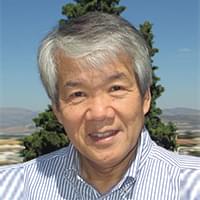
Kazunobu Onogawa
Director, The IGES Centre Collaborating with UNEP on Environmental Technologies (IGES/CCET), Japan
Mr. Onogawa joined IGES in 2012 as a senior fellow. Before joining IGES, he was the Director of United Nations Center for Regional Development (UNCRD) between 2002 and 2011, and also served for IGES as a trustee member over this period. After graduation from Kyoto University in 1972 reading Environmental Engineering, he joined newly established Environment Agency of Japan (current Ministry of the Environment, MOEJ) and worked for policy development for water quality management, EIA, transport management as well as global environmental issues in addition to coordination of environmental research activities of national research institutes of Japan. He had also worked for UNEP (Bangkok), IIASA (Austria), National Institute for Environmental Studies (NIES, Japan), Regional Environment Center for Central and Eastern Europe (REC, Hungary) in addition to MOEJ and UNCRD.
Professor, Institute of Technology Bandung, Indonesia.
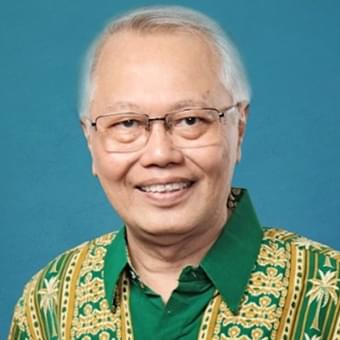
Enri Damanhuri
Professor, Institute of Technology Bandung, Indonesia.
Professor, Department of Environmental Engineering (DEE), Faculty of Civil and Environmental Engineering, Institut Teknologi Bandung (ITB), Indonesia Dr. Enri Damanhuri is a professor at the Department of Environmental Engineering (DEE), Faculty of Civil and Environmental Engineering, Institut Teknologi Bandung (ITB), Indonesia. He has been lecturing at ITB since 1976 several courses such as solid and hazardous waste management, solid waste treatment and disposal, waste recovery and recycling.
In addition, Dr. Damanhuri provides consultancy for various types of engineering design and management of solid and hazardous waste aspects throughout the country.
He has been participating in the preparation of various regulation concepts and technical guidance related to solid and hazardous waste management and technology for Indonesia. His extensive experiences in research and consultancy concurrently provide him with a better fusion between academic approach and practical approach in perceiving solid and hazardous waste problems in Indonesia.
Programme Officer, International Environmental Technology Centre (IETC), UNEP, Japan
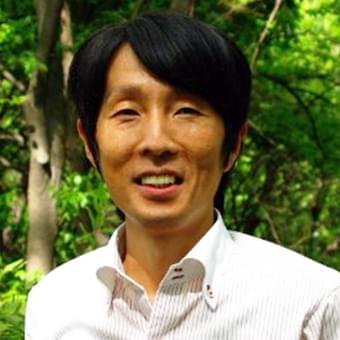
Shunichi Honda
Programme Officer, International Environmental Technology Centre (IETC), UNEP, Japan
Shunichi Honda joined UNEP IETC in May 2015. He has been implementing several projects, including the mercury waste project, the Minamata Initial Assessment (MIA) project in Asia, National Waste Management Strategies in collaboration with the IGES Centre Collaborating with UNEP, and Waste and Climate Change Project. He is a member of several committees, including the Working Group on Sustainable Consumption of the Japanese Ministry of Agriculture, Forestry and Fisheries, the External Review Committee of the National Institute for Minamata Disease, International Committee of the Japan Society of Material Cycles and Waste Management. His one of new responsibilities is the UNEP Sustainability Action in collaboration with global companies to change people’s behaviours towards SDGs and sustainability.
Prior joining UNEP, Shunichi was a senior officer in charge of the Basel and Minamata conventions and international waste management in the Ministry of the Environment, Japan.
Shunichi holds a PhD in Environmental Science from the University of Shizuoka, Japan, and he completed a postdoctoral course in Tsinghua University, P.R.China.
Deputy Director, The IGES Centre Collaborating with UNEP on Environmental Technologies (IGES/CCET), Japan.
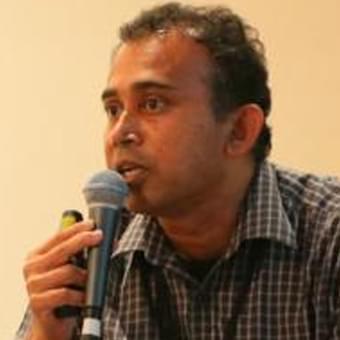
Premakumara Jagath Dickella Gamaralalage
Deputy Director, The IGES Centre Collaborating with UNEP on Environmental Technologies (IGES/CCET), Japan.
Dr. Premakumara is a development planner, holds a PhD in Management Development from the Nihon Fukushi University, Japan in 2006. He has over 25 years’ experiences in working with academic, government, nongovernmental organisations, bilateral and international development agencies. Currently, he works as a Deputy Director of the IGES Centre Collaborating with UNEP on Environmental Technologies (CCET) at the Institute for Global Environmental Strategies (IGES), Japan and assists developing countries and cities in improving waste management in more sustainable and circular manner. His work focuses on developing integrated/holistic waste management strategies at national and local levels, application of participatory learning and action methods to promote 3Rs (reduce, reuse and recycling) and circular economy/ resource efficiency societies, integration of informal sector and women participation in waste management, and linkages between waste and climate change as well as sustainable development goals (SDGs).
Director, Waste Control Division, Ministry of the Environment of Japan (MOEJ)
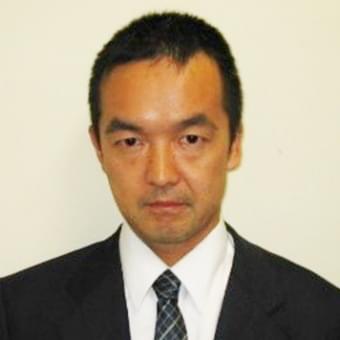
KAMIYA Yoichi
Director, Waste Control Division, Ministry of the Environment of Japan (MOEJ)
Mr. Yoichi Kamiya joined the Ministry of the Environment, Japan in 1991 and has worked for vehicle pollution management, transboundary movements of wastes, pesticide control, PRTR system, asbestos control, and PCB treatment subjects. Before assuming the current position, he was involved in the control of global warming issues from management of vehicle emissions and through the promotion of offshore wind power generation, as well as the evaluation of EIAs. He was responsible for the decontamination work of polluted soil, air quality management at the area where the Fukushima Daiichi nuclear power plant accident had happened.
Executive Director, Health Environment and Climate Action Foundation (HECAF360)
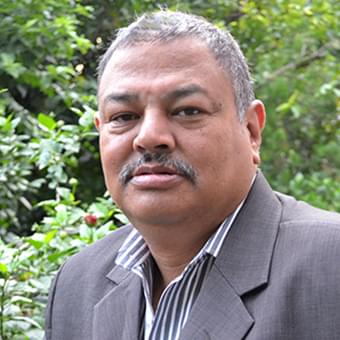
Mahesh Nakarmi
Executive Director, Health Environment and Climate Action Foundation (HECAF360)
Mr. Mahesh Nakarmi, a leading international expert in health, environment, and emergency medicine, is the founding Chairman and Executive Director of Health Environment and Climate Action Foundation (HECAF 360), which is creating a clean, green, climate-smart health care system in Nepal.
Senior health care waste management specialist Mr. Nakarmi pioneered the use of non-burn technology “Autoclaves”—a smart solution to the disposal of infectious waste in Nepal. At the request of hospitals, Nakarmi and his HECAF 360 team replicated this Zero Waste model in 12 big hospitals and 40 small health clinics in Nepal.